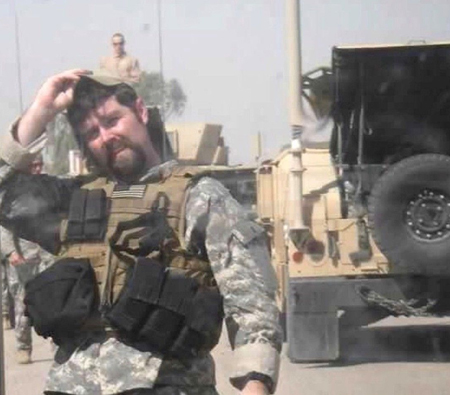 This is hard to believe, but…
This is hard to believe, but…
Post-traumatic stress disorder (PTSD) is a common, normal, and often adaptive response to experiencing a traumatic or stressful event. In fact, according to PTSD.gov (2017), approximately 7 out of 10 Americans have experienced at least one traumatic event in their lives. Researchers suspect the numbers to be much higher because many people never report it or seek treatment.
Unfortunately, the numbers are even higher in the military and first responder communities. Realistic training, higher levels of fitness, and the warrior culture helps many of us deal with trauma at higher levels than the average citizen, but it does not inoculate us from it completely.
The human brain isn’t designed to suffer trauma day in and day out for decades at a time.
To keep itself alive, the brain begins to adapt to the stress by optimizing our minds and bodies for the sustained stress and threat to life. We develop levels of hypervigilance; always keeping an eye out for danger.
During this process, we stop trusting our emotions. Fear, anger, frustration… they have no place in combat. To survive, we suppress the emotions, choosing instead to focus on our breathing and rely on our training.
This skill makes us great at war, but horrible at life.
 The problem is that after a while…
The problem is that after a while…
… our brain adapts and starts to use that method for all situations.
We feel fear, anger, and frustration in our normal lives. A loud bang from a car backfiring sends our heart racing. There are too many people in the grocery store aisle. No one is paying attention, and someone bumps into you with their shopping cart.
In the beginning, we take a few deep breaths and tell ourselves to calm down, that we aren’t downrange. That there is no threat.
But the body can’t tell the difference. It is acting like you are still in the war. Day in and day out, that cycle repeats itself slowing eating away at your ability to cope. It slowly removes your resiliency.
Then, many look for some outside substance to help make up some of the lost resilience. Some turn to prescription medication while others turn to drugs and alcohol hoping to dull some of the sharpened senses.
It helps… until it doesn’t.
The substances prolong the eventual crash, but it doesn’t stop it.
To stop it, you must start tackling the problem.
You must stop suppressing the emotions and instead you must start feeling them. By tackling them head-on, you will give them a chance to dissipate, to leave you through the normal emotional cycle.
Let’s look at it a different way. Imagine that you and a loved one get into a fight. There is an argument, some hurtful words are exchanged, and you feel extremely upset. Your feelings are hurt, you are angry, and you feel a sense of loss because the relationship is frayed.
Imagine if you never see that person again after that fight. Can you imagine how not having that closure would stick with you for years?
Now, imagine instead, that after a short amount of time, you and your loved one apologizes to each other for the hurtful words. You makeup and hug it out. Instantly you feel better. The emotional cycle has been completed and now everything feels right in the world.
This is an oversimplified way of explaining what is happening to you when you suppress these stressful emotions. If you truly want to overcome the darkness of the past. You must be willing to work through those old emotions and in essence, to hug it out, so you can move on.
 That’s what Operation True North is here to help you do.
That’s what Operation True North is here to help you do.
We provide the space and time for you to learn coping skills that help you mediate and deescalate your emotions before they cause more stress and pain – not just for yourself, but for those who care about you.
Almost everyone who experiences a scary situation will show at least a few signs of post-traumatic stress.
There’s good news. This doesn’t have to be permanent. Many effective treatments are being developed at a nearly continuous rate.
Confronting past hurts, fears, and worry is not easy, but you don’t have it do it alone. Our team of counselors can relate to your experiences because we’ve been there.
We’ll support you to not just acknowledge what you’re feeling and experiencing, but we’ll help you identify the root cause so that the hurt, anger, and fear of your past experiences don’t have to rule your emotions and your life.
Don’t suffer in silence!
Let us help you tackle some of these issues of the past so you can start living your best life.
Call us today for a free consultation, and let us help you get back on track: (720) 379-3759.

